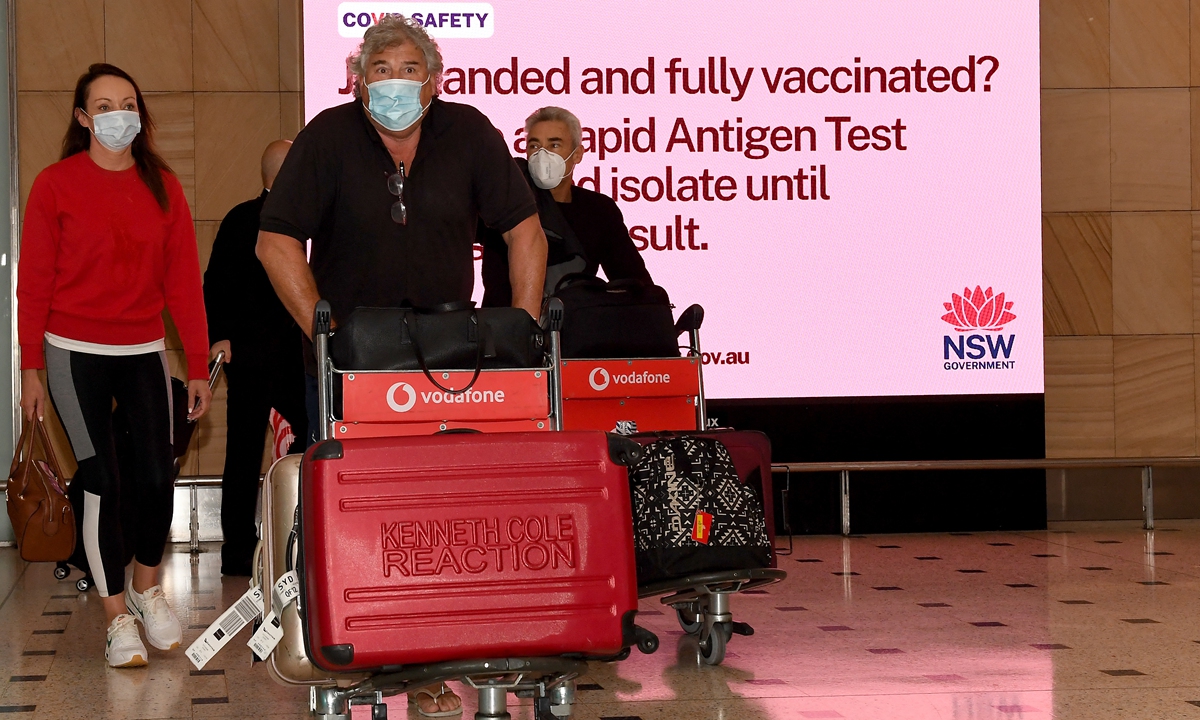Aussie researcher warns of deadly risk of novel flu viruses

Passengers make their way out upon arrival at the Sydney International Airport on February 21, 2022, as Australia reopened its borders for fully vaccinated visa holders, tourists and business travelers. Photo: AFP
The reopening of Australia's international borders following a two-year closure due to COVID-19 could trigger the rise of new forms of influenza, according to a leading virologist.Professor Kanta Subbarao, writing in the Medical Journal of Australia (MJA) on Monday, said that the lifting of quarantine regulations posed the potential for "novel flu viruses," such as from animals, crossing over to humans and then spreading quickly due to the community's lack of immunity.
Subbarao, director of the World Health Organization's Collaborating Center for Reference and Research on Influenza at the Peter Doherty Institute for Infection and Immunity, said, "we have learnt from COVID-19 that we ignore the animal-human interface at our own peril."
She said that while health authorities' primary focus remained on seasonal flu, there was a need to "remain vigilant" about the threat of germs spreading between animals and people, noting that various forms of bird flu viruses had already been reported in the state of Victoria, while swine flu viruses had been detected elsewhere in Australia.
Subbarao's MJA editorial made several recommendations to avert such a health crisis including establishing "surveillance at the animal-human interface because focusing on viruses that can cross the species barrier is an excellent place to start."
The virologist also said there needed to be "improved communications between animal and human public health sectors so we can institute active surveillance on people involved in culling large numbers of infected animals."
She also called for stronger public and private partnerships to "lower the barriers to surveillance at the animal-human interface."
"Such efforts will be beneficial beyond influenza: The COVID-19 pandemic and recent reports of a new genotype of Hendra virus in Australian flying foxes are excellent reminders that other animal viruses that can cross species barriers bear watching."
Her warning of novel flu viruses comes at a time when health authorities are preparing for the return of seasonal flu following a two-year reprieve from the usual annual disease.
Xinhua
